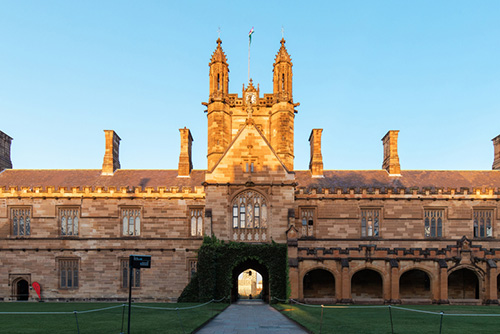
The University of Sydney has been ranked 80th in world in the 2019 Academic Ranking of World Universities (ARWU).
The ARWU is released annually by the Shanghai Ranking Consultancy, ranking more than 1,800 universities worldwide, publishing the top 1,000 universities and providing specific rankings for the top 100.
The rankings use six indicators to rank universities’ academic and research performance, including alumni winning Nobel Prizes and Fields Medals; staff winning Nobel Prizes and Fields Medals; highly cited researchers; papers published in journals of Nature and Science; papers indexed in major citation indices; and per capita academic performance.
Harvard University has ranked number one for the 17th year running, with Stanford University and University of Cambridge ranked second and third respectively.
In the 2019 ARWU Global Ranking of Academic Subjects, which were released in June, three University of Sydney subjects were rated in the top 20 globally and 12 in the top 50. Transportation science and technology was ranked fifth in the world, clinical medicine 16th, veterinary science 18th and civil engineering 24th.
The University of Sydney’s Deputy Vice-Chancellor (Research) Professor Duncan Ivison said the ranking is “a clear demonstration of the high-quality research” being undertaken at the University.
“We are proud of the achievements of our staff and alumni. They are leading the way in their fields, pursuing new ideas and addressing some of the world’s greatest challenges,” Professor Ivison said.
In June, the University of Sydney moved into second place in Australia in The Times Higher Education World Reputation Rankings 2019, jumping from band 71-80 to 61-70. This moves the University into second place, up from third, for reputation in Australia.
Professor Ivison said the outcome was “a great tribute” to the University’s academic and professional staff who are have been lifting the performance of the University in education and research.
“In the past few years, we’ve undertaken some of the biggest reforms in a century to both our curriculum and our research approach; and it’s starting to pay off,” he said.
Professor Ivison said the result also demonstrated the “extraordinary contribution” the University’s staff and students are making to society more generally.
“We are working with more partners than ever before, collaborating to tackle some of the biggest challenges the world faces – whether it’s climate change, chronic disease, inequality or artificial intelligence,” he said.


